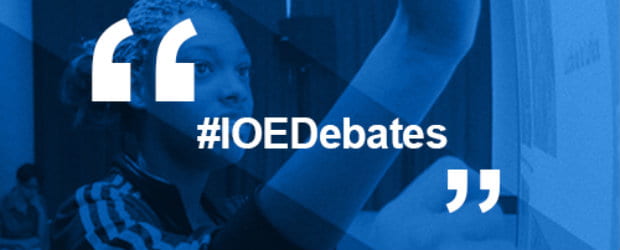Tina Isaacs
Reading the headlines about the current GCSE furore brought me back to the heady days of September 2002 and the last major examination crisis. Teachers reported marking discrepancies in certain A level coursework modules and complained to awarding bodies and the media. The BBC news headline on 15 September 2002 stated: “Inquiry into exam fixing claims… the exams watchdog is investigating persistent complaints from head teachers that this year’s A-level results were ‘fixed’ to stop grades ballooning”.
The story ran in the media for weeks and resulted in the Tomlinson inquiry where modules in 31 A- level subjects were re-graded. Grade boundaries changed in 18 units out of a possible 1,200, resulting in just under 2,000 students getting higher AS and A level grades. The Qualifications and Curriculum Authority’s chairman was dismissed and the Secretary of State resigned.
This time around the crisis is more focused. Grade boundaries for GCSE English modules were changed between the January and June series, with the worst offender seemingly AQA’s English Language controlled assessment (coursework) module. Teachers marked their students’ coursework for June bearing in mind what the all important C/D grade boundary had been in January. But more marks were necessary to gain a grade C in June than in January. Teachers were unsurprisingly upset that students who they believed would gain a comfortable C ended up with Ds.
Once again the press leapt in. For example, the Manchester Evening News reported that “Teachers say pupils have had their futures ruined after exam bosses ‘moved the goalposts’ on a crucial exam”. The BBC ran a story under the headline “”. Gove admits GCSE pupils treated unfairlyIt looks as though there will be an inquiry along the lines of Tomlinson’s 2002 report, possibly spearheaded by the House of Commons education select committee.
If so, I hope that it makes sure it fully understands the complexity of the issues. 2012 was the first year of the new English specification (syllabus) – actually three new specifications: English (a combination of language and literature), English language, and English literature. There was also a new element in the specifications — Functional English. The English and English Language qualifications are tiered and foundation tier students’ grades are capped at grade C. Ofqual has introduced the notion of comparable outcomes, meaning that all things being equal, cohorts (but not necessarily individuals) with the same prior performance data should get the same outcomes in 2012 as in 2011. All of this means that setting standards in new qualifications is more demanding than maintaining standards in existing ones.
For the January modules, the awarding bodies had less robust statistical information than they would in a mature qualification. In addition, proportionately few students’ work was graded, so awarders had less cohort information than usual. Ofqual found that AQA’s January marking had been lenient, that is, some students who got C grades should have got D grades. Its report states that the June grades, derived from a much larger group of students, fairly represented achievement, taking into account students’ prior performance (mainly from key stage 2 tests) and awarders’ judgements.
I’ve seen press reports claiming that anywhere between 10,000 and 133,906 students who should have got a grade C in June received a grade D. That’s a huge discrepancy. I wish I could weigh in with my own well researched figures, but the Ofqual report was a bit light on statistics to make any definitive statements. Perhaps this is because the report was, rightly, written quickly or that Ofqual wanted to make its findings accessible to the general public. Given that a grade C in English is crucial to many young people’s futures, I wish that there had been a technical annex or two to help understand what, if anything, went wrong.
 Close
Close


 15 March 2022
15 March 2022


